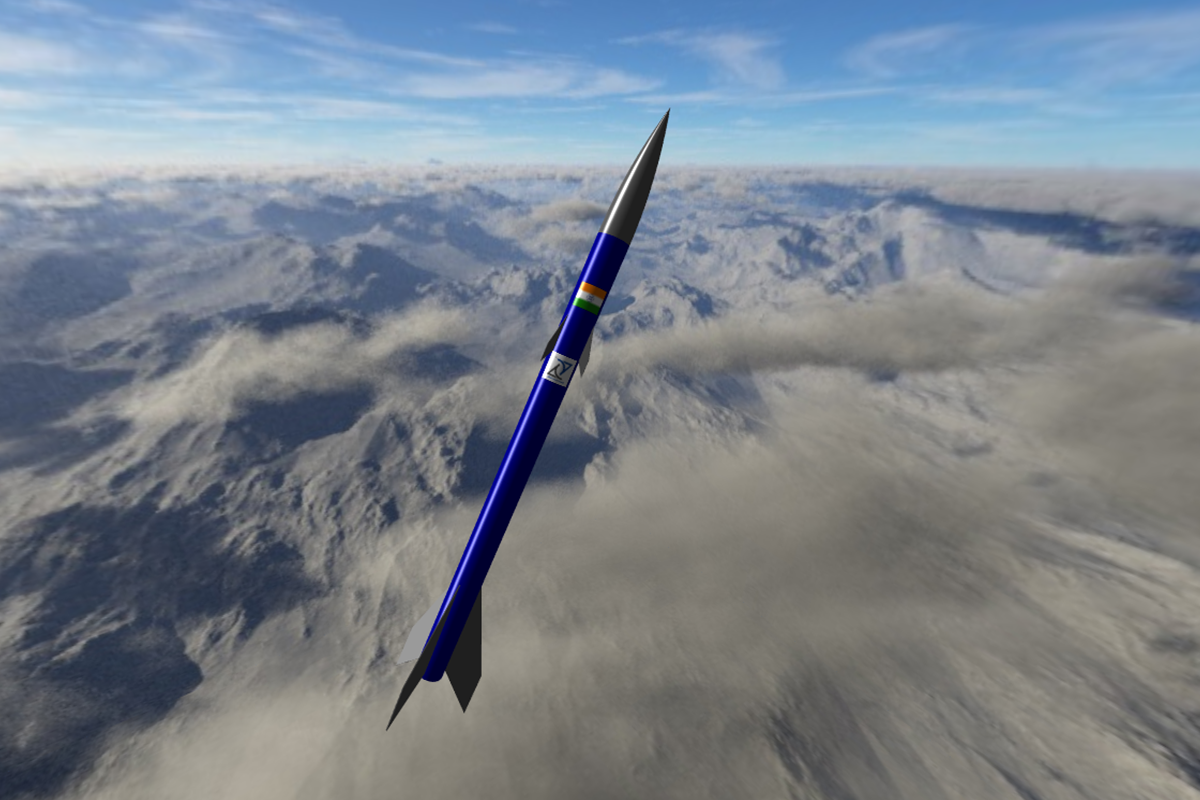Sounding rocket built by students for educational purpose launched in Tamil Nadu
The rocket carrying 150 research experiment cubes lifted off around 8.15 am from an open space belonging to the Tamil Nadu Tourism Development Corporation ground at Devanari village in neighbouring Chengalpet district.
A sounding rocket carrying 150 payloads built by students for educational purpose was successfully launched near Chennai, the organisers said on Sunday.
The Dr APJ Abdul Kalam Satellite Launch Vehicle Mission 2023 (APJAKSLVM2023) was designed and built by a team comprising students and space industry experts. The rocket carrying 150 research experiment cubes lifted off around 8.15 am from an open space belonging to the Tamil Nadu Tourism Development Corporation ground at Devanari village in neighbouring Chengalpet district.
The event was organised by the Dr APJ Abdul Kalam International Foundation set up in memory of late former president A P J Abdul Kalam and Martin Foundation, an NGO set up by the Martin Group of Companies. Nearly 3,500 students of Classes 6 to 12 studying in various government schools across the country took part in the launch event. The rocket can be used for taking up research in weather, atmospheric and radiations, Martin Foundation said. Of the 3,500 students, 80 students were sponsored by Mumbai Municipal Corporation, Nagpur Municipal Corporation who were shortlisted for manufacturing the payloads.
Late president Kalam’s niece Nazema Maraikayar, a trustee of the Kalam International Foundation, said: “As a family member, this is a proud moment for me. Kalam dreamt about providing equal educational opportunities to all and we have taken a small step towards realising his dreams.”
Telangana Governor Tamilisai Soundararajan and noted Indian Space Research Organisation scientist Mayilsamy Annadurai were present on the occasion among others. Later talking to reporters, Annadurai said students not only learned about satellite technology but also gained knowledge on science, technology, engineering and mathematics.
Elaborating further, he said ahead of major rocket launches undertaken by various space agencies including ISRO, National Aeronautics and Space Administration (NASA) in United States, sounding rockets were used for educational purposes to ensure whether the vehicle reach the desired altitude carrying the payloads.
“Nearly 5,000 students from all over the country were shortlisted based on their performance in a preliminary test that was conducted earlier. Along with scientists and experts in the space technology, these students were involved in building this sounding rocket,” Annadurai said.
Earlier, the students used gas balloons and drones to study the work of payloads which flew for sometime. The sounding rocket was used as the next step, he said. “All the parameters performed well today. The rocket reached an altitude of about 100 kms as planned after it lifted off around 8.15 am. A team has gone to collect the systems so that the rocket can be reused,” Annadurai said. “The students have not only built a rocket, but a reusable launch vehicle which can be used for another launch…,” he added.
Annadurai argued that these kind of events should be conducted regularly encouraging students to take up a career in the space sector. “Today, more than 5,000 students took part. It is a small number in comparison to a country like ours. But these kind of events can be conducted regularly. It is a special beginning to these kids,” he said.
Governor Soundararajan, while extending her congratulations for the successful attempt, hailed Martin Foundation, APJ Abdul Kalam International Foundation and Space Zone India for having given an enriching experience to the students.
Martin Group of Companies Managing Director Jose Charles Martin said: “I am elated to be a part of this ambitious mission. This is certainly a great opportunity for students. Now that they have been exposed to the space sciences, they can think about career options in this sector.”
